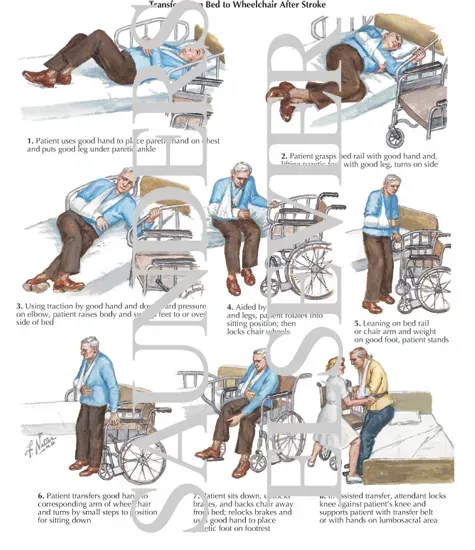Navigating the complexities of nurse transfer tips is essential for any healthcare professional contemplating a move to a new position. Whether you’re aiming for a nursing career transition or simply seeking a refreshing environment, understanding the nuances of the transfer process can make a significant difference in your success. This article outlines effective strategies on how to transfer as a nurse while emphasizing critical components such as resume tailoring and interview preparation. By focusing on successful nurse transfer strategies, you’ll be equipped to handle the nuances of nurse job applications with ease. Join us as we delve into expert advice that can enhance your chances of achieving a seamless transition in your nursing career.
As healthcare professionals, the journey between positions within nursing can be both invigorating and demanding. Known informally as career transitions in nursing, this process not only involves a change of workplace but also necessitates a strategic approach to maximize opportunities. In this guide, we will shed light on various approaches to understanding the transfer process, from effective communication to crafting relatable job applications. Our focus will be on providing actionable nurse transfer tips, ensuring that you are well-prepared to tackle the challenges that come with the new endeavors. Join us to explore how mastering these skills can propel your nursing career forward.
Understanding Nurse Transfer Policies
Before embarking on a nursing career transition, it’s imperative to take the time to understand the various policies that govern transfers within your current institution and prospective workplaces. Each healthcare facility has its unique set of protocols, and being well-versed in these can open doors to a smoother application process. Do that, and you are not merely reacting to opportunities but strategically positioning yourself for success.
Additionally, familiarizing yourself with these policies allows you to better navigate any potential hurdles that may arise during the transfer process. Consulting your current human resources department can provide clarity on what’s required of you, including necessary documentation, timelines, and available vacancies.
Frequently Asked Questions
What are the best tips for a successful nurse transfer?
For a successful nurse transfer, start by understanding the transfer policies of both your current and prospective employers. Communicate your intentions to your manager, network within your desired facility, and tailor your resume to highlight relevant skills. Additionally, obtain strong references, choose the right timing for your application, and prepare thoroughly for interviews to ensure a smooth transition.
How do I prepare my application for a nurse transfer?
To prepare your application for a nurse transfer, customize your resume by emphasizing relevant experiences and skills for the new position. Highlight any specialized training or certifications that align with the target role, and ensure your application reflects your adaptability and readiness for the new challenges you will face.
What nurse interview preparation strategies should I use when transferring?
When preparing for a nurse interview during a transfer, practice common interview questions and articulate your reasons for the transfer clearly. Research the new facility’s culture to align your answers with what they value, showcasing your understanding of their environment and your potential fit within their team.
What should I communicate to my manager before a nurse transfer?
Before initiating a nurse transfer, inform your current manager about your career intentions. This demonstrates professionalism and respect, and allows you to gain insights and potential support from your manager, which could enhance your chances of a successful transfer.
How can networking help in my nurse transfer process?
Networking is crucial in the nurse transfer process; it can significantly increase your chances of securing a new position. Building relationships at your desired facility allows you to learn about potential openings and gain internal recommendations, which many employers highly consider during hiring.
What factors should I consider regarding timing when transferring as a nurse?
Timing can greatly impact your nurse transfer success. Apply during less busy periods in your current role to ensure you can devote adequate time to the application process. Additionally, consider the hiring cycles of potential employers, as applying during peak hiring seasons can improve your chances.
| Tips for Successful Nurse Transfer | Key Points | Actions to Take | |
|---|---|---|---|
| Understanding the Transfer Process | Research Policies | Familiarize yourself with internal transfer policies of both your current and prospective employers. | |
| Importance of Communication | Inform Your Manager | Notify your current manager about your intent to transfer for their support. | |
| Preparing Your Application | Tailor Your Resume | Update your resume to highlight relevant skills and experiences aligned with the new position. | |
| Seeking References | Obtain Strong Recommendations | Get recommendations from supervisors or colleagues who can vouch for your skills. | |
| Timing Your Transfer | Timing Considerations | Apply during less busy seasons to enhance your chances. | |
| Preparing for Interviews | Practice Interviewing | Prepare for common interview questions and know the culture of the new facility. | |
| Professionalism During Transition | Stay Professional | Maintain effective performance and positive attitude during your current role. | |
| Remaining Flexible | Be Open to Change | Adapt to new protocols and team dynamics as you transition. | |
Summary
Nurse transfer tips are essential as they guide you through the intricate process of transitioning from one nursing position to another. Understanding the transfer process, effective communication, and thorough preparation are vital steps to facilitate a smooth transition. When you research policies, network professionally, and prepare a tailored application, you enhance your chances of landing your desired role. Moreover, seeking strong references and maintaining professionalism during your transition can significantly impact the hiring decision. Remember, flexibility is key—adaptability will help you thrive in a new environment. By following these comprehensive tips, you can successfully navigate your nurse transfer journey towards enriching career opportunities.



